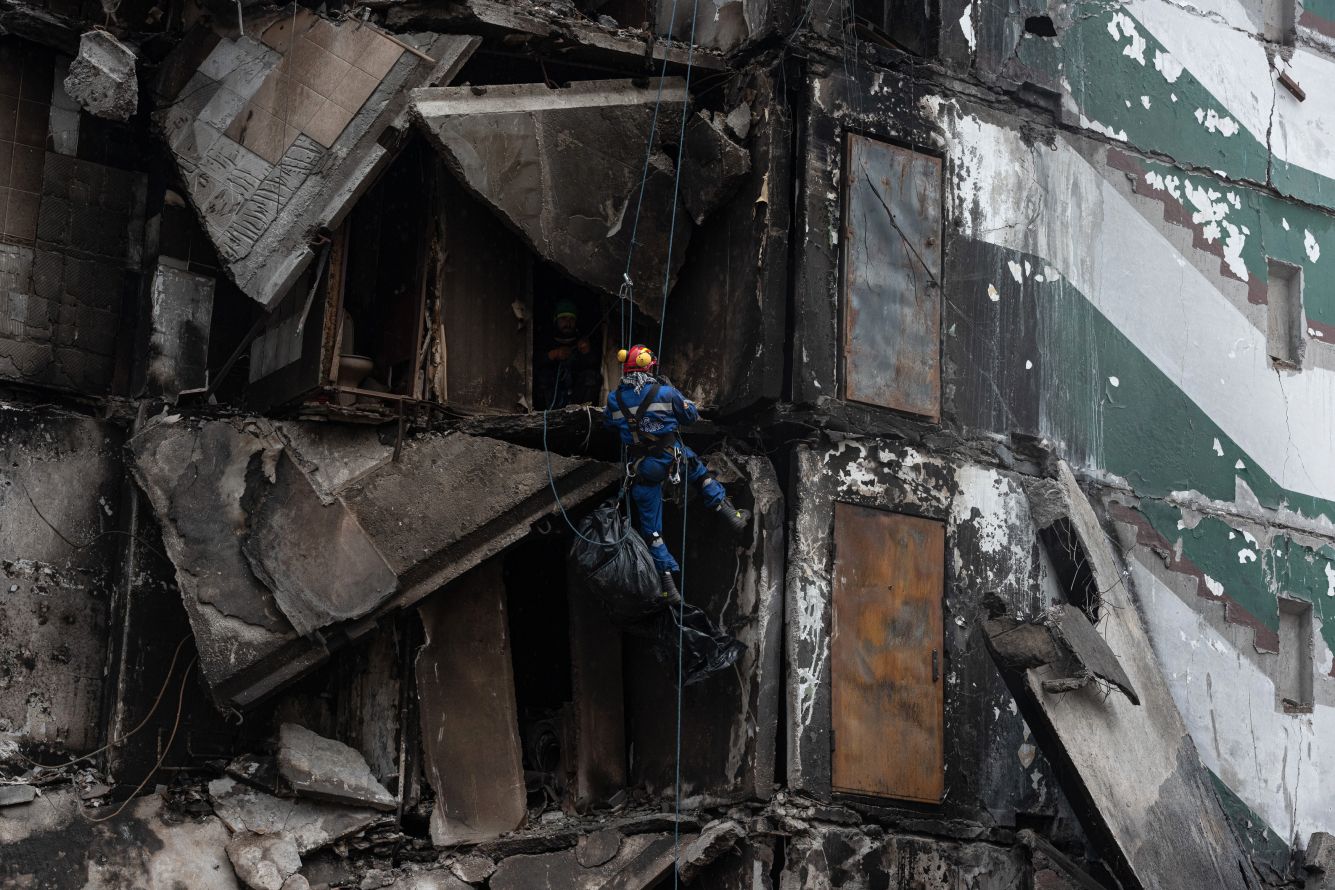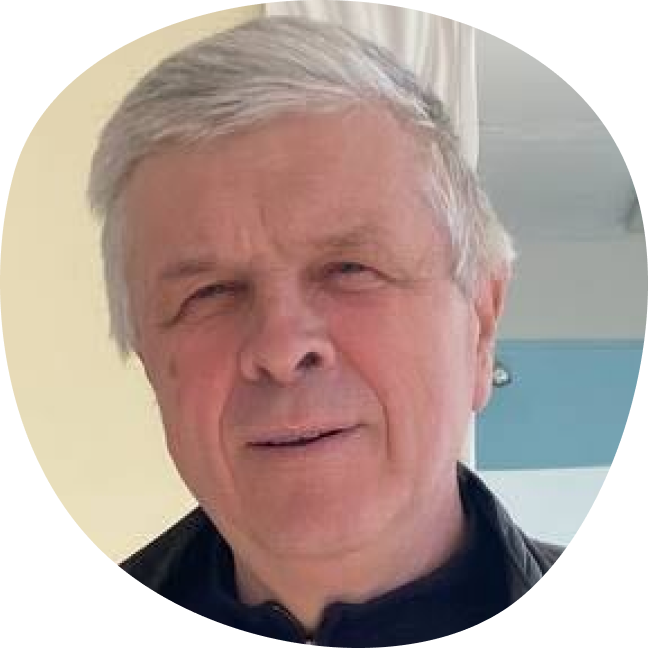‘Stolen lives, stolen hopes’
Borodyanka Mayor Georgiy Yerko on how Russian forces occupied his town and left it in ruins

Borodyanka is a small town in the Kyiv region, on the right bank of the Dnipro River. When the full-scale invasion of Ukraine began, the towns and villages surrounding Hostomel’s Antonov Airport, including Irpin and Bucha, took the brunt of the assault from the Russian troops moving toward Kyiv from Belarus. Borodyanka, which is a little further west, also came under occupation. When Russian forces retreated from the Kyiv region about a month later, Ukrainian authorities said the state of Borodyanka was worse than the horrors uncovered in Bucha. Those who survived the occupation spoke of tanks shooting at residential buildings at point-blank range, while civilians hid in their basements. Constant gunfire made rescue operations impossible during the occupation. Today, the bodies of the dead are finally being extracted from the ruins. Speaking to Meduza, Borodyanka’s acting Mayor Georgiy Yerko tells the story of how Russian forces destroyed his town.

Everybody awoke to a new reality. For us, it is still February 24. No one could have imagined this turn of events. The first bomb fell on Bila Tserkva, then they began an aerial assault on the Hostomel Airport. This was when we started feeling the force of those blows, since Hostomel is so close to here. At the same time, tanks started heading toward Ivankiv from the direction of Belarus, passing through Borodyanka. The first village in their path, the first one from our hromada to be occupied, was Shybene. Then they came to Borodyanka. As they passed through, they shot at homes from their tanks and at civilians from their machine guns.
Then came the aerial assault on our town’s homes. In order to weaken the population and deprive people of basic groceries and supplies, to “denazify” us, they immediately destroyed our grocery stores. We didn’t have any troops, we’ve never had any military bases, we’re just a peaceful town full of civilians.
Because a lot of the multi-story buildings fell after the aerial assaults, we asked permission to go through the ruins. A few brave people tried to dig out buried basements with their bare hands, but the Russians just opened fire on them again. The equipment we sent toward the rubble came under direct fire. People were dying in the ruins and in the basements of the multi-story buildings.
During the occupation, all civilian movement was prohibited. The Territorial Defense did not have the equipment to stop their armored vehicles. We didn’t have any [Ukrainian forces] in town. Homes in the path of the military columns were shot at point blank. They destroyed our critical infrastructure, leaving us without power, water, or gas. They blew up oil storage facilities, factories, schools, daycares, cultural centers, and communications hubs.
They opened fire on our civilians, they didn’t give a damn. They didn’t let the wounded or pregnant women out of our hromada, either. They didn’t let people bring in supplies or medicine. Volunteers who attempted to bring them to us were shot. After the occupation began, we started asking for humanitarian corridors, but none were approved. We tried to get people out through the gunfire, many of the crews were shot up along with their vehicles.
The village was covered in Grads. It’s hard to even describe the horror of Russians entering the villages, opening up the cellars that people were hiding in, throwing in grenades, or just shooting at them indiscriminately. They shot up people’s homes with people in them, they’d shoot anyone they saw. And even under these conditions, we tried to get people food and get people out.
During the occupation, both men and women were tortured. We’ve found bodies with their hands tied behind their backs showing signs of having been tortured. Many people were evacuated in the direction of Belarus against their will.
Every act of courage by our troops deserves its own retelling. Many didn’t have any weapons or defense equipment but still managed to undertake expeditions and reconnaissance operations, they brought in humanitarian supplies. But there were territories where the occupation was so harshly enforced that bringing in aid was completely impossible. Borodyanka’s psycho-neurological inpatient center was besieged. They had a geriatric unit with 400 patients with serious psychiatric illnesses. They took the disabled and children hostage! Without any food or medicine, water or power, under constant fire. They buried the dead out in the street. Later on, we managed to get them to allow us to evacuate who was left.
Civilians were also taken prisoner. We have hundreds of missing people.
We still don’t understand why they waged war on civilians. There was a lot of [military] equipment, a lot of troops. Borodyanka had lots of world record holders, European champions, distinguished trainers, talented singers and musicians, artists, engineers, agrarians, gifted kids. The troops came in here and shot at all of them indiscriminately — at women and children!
They stole our lives and our hopes for the future. This isn’t just a crime against Borodyanka, it’s a crime against humanity.
Interview by Alexey Slavin
Translation by Bela Shayevich